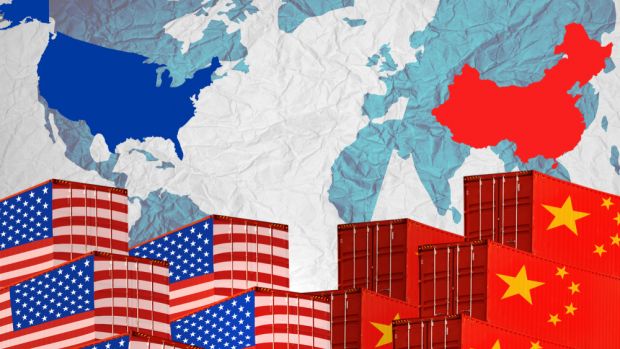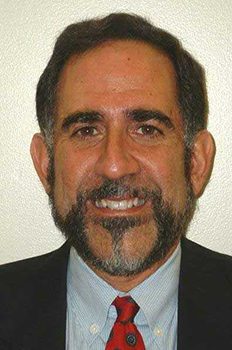
June 4, 2019
By Alan Tonelson
For decades (decades!), when describing how U.S. trade policy should be overhauled, I’ve emphasized that Washington’s approach needs to be not only “tougher” or “stronger” — as per the favored terms of politicians and reporters. It needs to be smarter and more nimble as well.
So here’s to the Japanese publication Nikkei Asian Review. It’s just shown exactly why – and why such smarts and agility are especially important for an administration more than willing to use tariffs on China and other economies to achieve its policy goals. (And thanks also to my Twitter follower “DeSaram-MAGA” for calling my attention to the piece.)
For a team of Nikkei journalists has investigated a key subject that no one in the Trump administration, the Congress, or the American media (at least to my knowledge) has bothered to look at: How much of the falling U.S. imports from China are being replaced by supplies genuinely produced in other countries (like Mexico and Vietnam), and how much are being replaced by goods from China being shipped through other countries either simply by putting them in different boxes and containers, or by slapping a coat of paint on them or making some other superficial change before sending them on to the United States?
The answers matter because if it’s mainly or significantly the former, then it becomes clear that the Trump tariffs really are hurting China by denying it sale opportunities that are being snapped up by other competitors. True, the final result per se won’t achieve the major Trump-ian goal of reducing the overall U.S. trade deficit. But China will be weakened – clearly another one of the President’s objectives – and the beneficiaries at least won’t be a huge, wealthy, powerful dictatorship acting like it wants to expand its influence in East Asia and perhaps the world over at America’s expense.
If the answer is mainly or significantly the latter, then it becomes clear that numerous other economies – including U.S. allies – helping China evade the American levies, and that unless they halt these practices pronto, the case for worldwide tariffs on lots of products becomes a lot stronger.
The Nikkei journalists present evidence for both propositions. But given the uproar that erupted over the global Trump metals tariffs (imposed precisely to prevent assistance given to the Chinese metals producers who had glutted global markets), signs of customs fraud, transshipment, and related practices are especially important.
The Nikkei team provides some anecdotal evidence on this score. But the data-based case described is much more compelling. For example, the journalists found that although exports of five categories of goods from China to the United States – machinery and parts; electrical equipment and parts; furniture; toys; and automotive equipment and parts – declined between January and March of this year by 16 percent, “exports from China to developing countries and from developing countries to the U.S. [of these goods] have generally climbed. Exports via Vietnam, Taiwan and Mexico have increased particularly steeply.”
The rising Chinese exports to these countries strongly suggest that Vietnam, Taiwan, Mexico and others aren’t simply filling the China gap in the U.S. market with goods originating in their own economies. To a great degree, they’re helping Chinese origin goods fill that gap on the sly.
Even more suspicious, according to the article:
“Since the U.S. first slapped punitive tariffs on a broad range of imports from China, the six major Southeast Asian nations and Taiwan have started shipping nearly 1,600 new categories of products to the U.S. that they had never exported to America before.
“Of these new U.S.-bound exports, about 1,000 items, or over 60% of the total, are on Washington’s blacklist.”
That is, unless you believe that in a matter of months, major production capacity for this huge number of products somehow suddenly appeared where little, if any, existed before, then circumvention has to be rife.
The Nikkei findings don’t mean that the Trump administration should build all-encompassing tariff walls immediately. But they do mean that Washington needs to demand prompt answers from the economies in question. U.S. leverage, moreover, in many cases isn’t only economic. It’s grounded in national security, too. Countries like Vietnam, Taiwan, and Malaysia aren’t official U.S. treaty allies, but are all quite pleased that the American military counters China geopolitically by basing lots of assets in their neighborhood.
President Trump plainly understands that the United States needs these countries much less than vice versa both economically and security-wise. But the trade policy overhaul he’s rightly pursuing still needs to do better at guarding against foreign efforts to game the system. In this case, that requites demonstrating one of the most reliable signs of intelligence – curiosity.
 ALAN TONELSON
ALAN TONELSON
Alan Tonelson, a columnist for IndustryToday, is founder of the RealityChek blog (alantonelson.wordpress.com), which covers manufacturing, trade, the economy, and national security. He has written for many leading publications on these subjects and is the author of The Race to the Bottom (Westview Press, 2000).
Scott Ellyson, CEO of East West Manufacturing, brings decades of global manufacturing and supply chain leadership to the conversation. In this episode, he shares practical insights on scaling operations, navigating complexity, and building resilient manufacturing networks in an increasingly connected world.